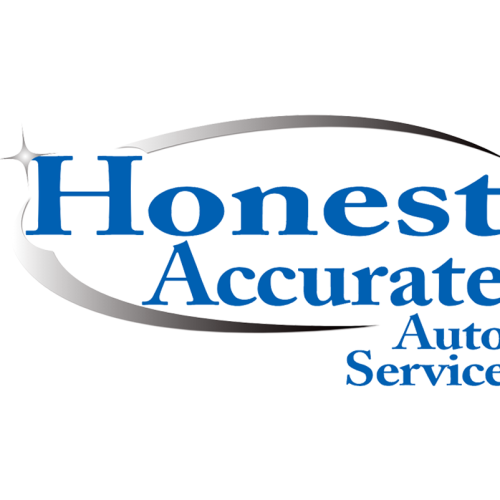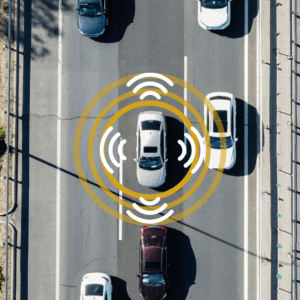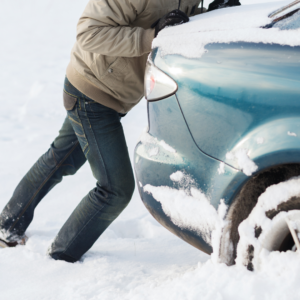Do you know what all your vehicle dashboard lights mean? How do you know if you need to stop immediately when a light comes on?
As a general rule, if the light that comes on is RED or is flashing, pull over as soon you can safely do so. If you continue driving under certain conditions, severe damage can happen to your engine or transmission. Yellow lights generally mean “caution” and the light can be checked at your earliest convenience (this doesn’t mean a month from now).
If a check engine light comes on, check your oil level and temperature gauge. If there is no oil showing on the dipstick, do not drive the car any further. The engine could become permanently damaged, and the resultant repairs or engine replacement could be very expensive.
If the temperature gauge is in the red zone (HOT), do not drive any further. Whatever you do, do not try to open the radiator cap while your engine is hot…you can be severely burned! A tow bill will be significantly less expensive that an engine replacement or engine repairs.
A few warning lights that you may see:
![]() Check Engine Light: This light should not be ignored…it is your car telling you that it needs attention soon. It could be as simple as a loose or defective gas cap, or a serious engine malfunction. Our shop can do a quick complimentary code check, to read the diagnostic code. That will give us an initial indication of how serious a problem the car has, and if it can be driven safely. For more details, see our blog on Check Engine Light diagnostics.
Check Engine Light: This light should not be ignored…it is your car telling you that it needs attention soon. It could be as simple as a loose or defective gas cap, or a serious engine malfunction. Our shop can do a quick complimentary code check, to read the diagnostic code. That will give us an initial indication of how serious a problem the car has, and if it can be driven safely. For more details, see our blog on Check Engine Light diagnostics.
 Maintenance Needed Soon: Computers on newer cars track the miles between oil change services, and will alert you when it is time for your next oil change (generally every 5000 miles, older cars should be monitored more frequently at about 3000 miles). These lights can look similar to a Check Engine Light or a small wrench, and sometimes even say “Maintenance Required Soon”. The light should be reset at each maintenance/oil change service.
Maintenance Needed Soon: Computers on newer cars track the miles between oil change services, and will alert you when it is time for your next oil change (generally every 5000 miles, older cars should be monitored more frequently at about 3000 miles). These lights can look similar to a Check Engine Light or a small wrench, and sometimes even say “Maintenance Required Soon”. The light should be reset at each maintenance/oil change service.
![]() TPMS Light: Indicates low or high tire pressure. Check your tire pressure soon, to avoid uneven tire wear or tire damage.
TPMS Light: Indicates low or high tire pressure. Check your tire pressure soon, to avoid uneven tire wear or tire damage.
 Coolant Temperature Warning Light: Indicates that the engine temperature is elevated. Since your engine optimally operates in a narrow temperature range, extreme damage can occur if it goes too high. Caution: let the engine cool before trying to remove the radiator cap or open the hood, as the escaping steam can burn you
Coolant Temperature Warning Light: Indicates that the engine temperature is elevated. Since your engine optimally operates in a narrow temperature range, extreme damage can occur if it goes too high. Caution: let the engine cool before trying to remove the radiator cap or open the hood, as the escaping steam can burn you
![]() Charging System Warning Light: Whenever this light goes on, it means that the vehicle is running solely on battery power and will only continue to run a very limited distance before it runs out of electrical power and dies. Your car may need a new battery, but more likely this indicates a problem with the charging system. Take your vehicle to your automotive repair shop ASAP to avoid a tow charge.
Charging System Warning Light: Whenever this light goes on, it means that the vehicle is running solely on battery power and will only continue to run a very limited distance before it runs out of electrical power and dies. Your car may need a new battery, but more likely this indicates a problem with the charging system. Take your vehicle to your automotive repair shop ASAP to avoid a tow charge.
![]() ABS light: The anti-lock/anti-skid brake warning system light will come on when there is a problem with either the ABS brake system or the normal brake system. These issues can also trigger the light: low brake fluid in the brake master cylinder or in the ABS brake system reservoir, problems with the wheel bearings or the wheel speed sensor, wiring issues, or even having mismatched tire. Have it checked as soon as possible, since your braking system is integral to driving (and stopping!) safely.
ABS light: The anti-lock/anti-skid brake warning system light will come on when there is a problem with either the ABS brake system or the normal brake system. These issues can also trigger the light: low brake fluid in the brake master cylinder or in the ABS brake system reservoir, problems with the wheel bearings or the wheel speed sensor, wiring issues, or even having mismatched tire. Have it checked as soon as possible, since your braking system is integral to driving (and stopping!) safely.
Your vehicle has many computer sensors that serve to alert you when there is a problem that should be addressed. Pay attention to what your car is telling you so that any problems or maintenance issues are addressed in a timely manner. Check your Owner’s Manual for the meaning of the lights in your specific vehicle. Safe travels this summer!




